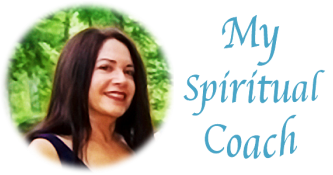Our need to survive has caused us to evolve into anxious, fearful creatures. The happy, unwary human contemplating the sunset was quickly consumed by the sabertooth tiger. The paranoid, wary human, who was startled by the rustling in the bushes and was constantly on the lookout for possible predators, lived another day. And so, through time, our minds enabled us to rise to the top of the food chain. Our nervousness and planning for all possible dangerous outcomes allowed us to dominate the planet but also not be happy while doing it.
Our minds, though brilliant problem-solvers and repositories of knowledge, create an enormous amount of distress and resultant physical ailments. Part of the problem is that the mind either abides in the past, thinking over hurts, bad experiences, and times of emotional turmoil. Or it rushes into the future, generating cascades of fear about what might or might not happen. Only the Soul, the inner connection to the perfect harmony of universal Source Energy is the gateway to the underlying peace of the eternal Now.
Enlightenment is finding our path to our Soul and abiding in it regardless of the changing circumstances of our lives. It is the direct experience of the eternal Now.
Many people think that enlightenment is some sort of mystical trance that allows us to be numb to all the difficulties of life. And that for the enlightened person, everything cooperates to create perfect physical comfort. They think that only a few people with spotless karma can reach it. Or that they need to take some mind-altering drug to get there. Or that they need to meditate for many hours a day in excruciating positions to achieve it. All this comes from a mistaken idea that enlightenment is “out there” and we have to go through the paces to “get there.”
It’s not “out there.” It is within—but few people can sit quietly enough to find it. As Pascal said, "All of humanity's problems stem from man's inability to sit quietly in a room alone." We need a constant onrush of companionship, input from social media, the news, whatever. Anything but be alone with ourselves. We can’t abide it. We can’t endure it. Yet being alone within ourselves is the gateway to inner peace, or enlightenment.
Enlightenment is not the result of a recipe for the “perfect life” with all the physical comforts taken care of for the duration. It is a context in which we experience our lives—no matter what comes our way. And it is our capacity to live in and appreciate the present moment—instead of thinking it is somewhere else—just not here and now.
It is simple but not easy.
Not easy, because the mind is automatic, repetitive, and thinks it’s helping us with its constant stream of “what ifs” from the moment we wake up. It justifies itself, wants to prove it's right all the time, and is looking out for “what’s wrong with this picture?”. It can be brilliant, but it does not know the way to happiness because it can’t live in the Now. Only the Soul abides in that eternal Now state. So enlightenment is finding our path to the Soul and then staying there. That is my definition of meditation, however we get there—mantras, music, being in nature, mandalas—it is the solitary contemplation of the Infinite.
It doesn’t come through any major activities or accumulation of knowledge. It comes first through a recognition of the human time-bound mental obsessions. Then it comes from finding that pathway to your inner heart, where all is still, at peace, and wise. The way I do this is to sit quietly, pay attention to my breath, open my palms upward on my lap, and say, “I am open and receptive to all vibrational levels of eternal joy and harmony.” I watch my thoughts as they cavort around but I realize that I am not my thoughts. They are just being generated by the automatic mind. They are not me.
Enlightenment does not mean that life is solved once and for all. Or that the mind won’t continue with its acrobatics. These activities are hard-wired into our minds and bodies. It also doesn’t mean that we have turned into perfect saints. We will still feel anger and all the unpleasant emotions—but we notice that these upsets will diminish as we practice abiding in inner peace.
Earthquakes, fires, and illness will still happen. The death of loved ones, cruelty, and war will still happen on this planet. This is the endless activity of physical existence and no amount of enlightenment will stop a tsunami. But if we are caught up in the inevitable, we can view it from the standpoint of the Eternal Soul and therefore not live and die in agony and terror. We understand instead, the eternal aspect of us, which is not separate from the unchanging and immortal Energy of the Universe, which has no beginning or ending.
Finally, enlightenment is being in touch with eternity. We don’t fear physical death. We don’t fear the end of this collection of memories and conditioning that we call our personality. It is a state of emotional freedom and it has nothing to do with being a devotee of a particular set of religious beliefs. It is the way out of suffering that all the great beings with spiritual insight have discovered. They have pointed the way but we must find our own path.

 RSS Feed
RSS Feed